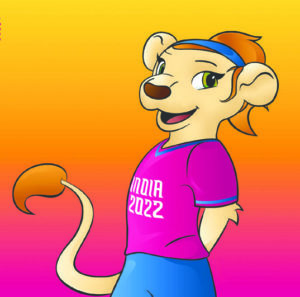Of Privileges!
Shillong witnessed massive traffic jams this past week due to Durga Puja as devotees came out in large numbers to seek divine blessings. While the celebrations, quite subdued as compared to previous years, ended on a peaceful note, the familiar sight of traffic jams was a déjà vu for most Shillongites.
Most people were stuck in the traffic for hours but a privileged few managed to exercise their right and might to make their way even through bumper-to-bumper traffic.
The SJ team spent most of the weekend figuring out who these privileged people were. Here’s a tailored list prepared for our readers to identify some of these people:
q They usually travel in swanky and expensive SUVs.
q Their vehicles come with dark window screens and smoked glass panes. You never know who the occupants are.
q They are always in a hurry and do not bat an eyelid before turning on their sirens to announce themselves to the lesser mortals on the roads.
q Some of them use private registration numbers on moderately expensive vehicles as well but they cannot be questioned.
q They are allowed to use their privileges 24×7.
We end this list with an observation: If our VIPs that include ministers, MLAs, MDCs, bureaucrats and chairmen and directors of public sector entities, are always in a hurry then why are all projects and important government works always delayed in Meghalaya?
‘Ibha’ controversy on social media
 Recently FIFA unveiled ‘Ibha’, the official mascot of the U-17 Women’s World Cup India 2022. It is coincidental that Ibha, which FIFA says is an Asiatic lioness representing women power, also happens to sound like a familiar Khasi word ‘ibha’, which means to take a fancy to something. It is commonly used by a man to express his liking for a woman.
Recently FIFA unveiled ‘Ibha’, the official mascot of the U-17 Women’s World Cup India 2022. It is coincidental that Ibha, which FIFA says is an Asiatic lioness representing women power, also happens to sound like a familiar Khasi word ‘ibha’, which means to take a fancy to something. It is commonly used by a man to express his liking for a woman.
According to a release issued by the global football body, Ibha aims to inspire women and girls across India and around the world to realise their potential.
For reasons beyond the comprehension of many, FIFA also managed to get the Khasi meaning of the word ‘ibha’. The world football body says Ibha approximately translates in Khasi as “one with good vision or judgement.” This is what got social media abuzz with everyone pointing out that FIFA got the meaning wrong. One with good vision or judgment would be called ‘uba/kaba iohi jngai’ or ‘uba/kaba shemphang’. Well, so much for ‘approximate’ meanings which are as distant as they can get from the real one.
So Ibha the lioness became a much-debated issue on social media, more so by language purists who are repulsed by the idea of a Khasi word being given a wrong connotation. The Khasi interpretation of Ibha could have only been given by a Khasi or someone who knows a smattering of the language.
But controversy or no controversy, the Khasi people should be happy that a mascot for the U-17 Women’s Football to be played in India carries a Khasi name. What’s in a name after all? The mascot and who she is (a lioness) carries more weight in terms of her representing women’s empowerment.
As Sarai Bareman, the FIFA Chief of Women’s Football, says, “Ibha is a really exciting and inspiring character, one that young fans across India and around the world will have huge fun enjoying and interacting with in the lead-up to the FIFA U-17 Women’s World Cup in India next year.” So let’s football and leave ‘Ibha’ to do what she does best – inspire.
Slow ride, long life
Awareness about road safety is a crucial subject which needs to be taken up seriously, especially involving youngsters, as accidents are occurring frequently on city roads and highways, with some even resulting in loss of precious lives besides severe injuries.
But apart from disseminating knowledge on road safety, there is something urgent that needs attention i.e. young boys speeding and riding recklessly, and seemingly devoid of mental presence about their or others’ safety.
Many people who visit the outskirts have been found to return with complaints about over-speeding and reckless riding done by young boys, most probably in their teens.
Roads, especially national highways, are intimidating places to be at with a two-wheeler, but youngsters are seen taking the most risks at this very venue — be it riding exceedingly fast, overtaking dangerously, and furiously competing within themselves (a group in which youngsters general move for such rides).
Despite the hazards, a significant number of youths have been seen doing what is mentioned here, and even cheating death sometimes.
This is a concern that needs to be addressed.
Unlike those days when traffic police personnel were on their toes to inspect whether or not motorists have been licensed to use their vehicles, these boys at present are having their fill of merry-making as such checks at different junctions have by and large stopped, particularly since the pandemic.



